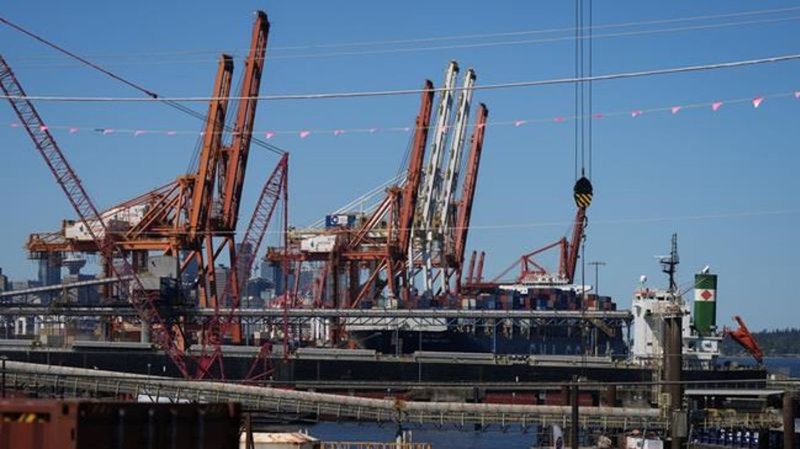
Minister’s tweet raises spectre of federal action as B.C. port workers vote down deal
VANCOUVER — Federal Labour Minister Seamus O’Regan responded Saturday to British Columbia port workers’ decision to reject a mediated contract offer overnight by raising the prospect of more federal intervention in the months-long dispute.
O’Regan said in a tweet Saturday that he “will have more to say very soon,” adding Canada must “bring stability back” to B.C. ports for the workers and businesses that depend on them.
The response came hours after the approximately 7,400 workers represented by International Longshore and Warehouse Union Canada voted down a tentative agreement that was presented to them by union leadership on Tuesday.
Union president Rob Ashton did not disclose in his statement the final vote tally, saying only that the workers are now calling on port employers to come to the negotiating table to talk directly instead of going through the BC Maritime Employers Association.


